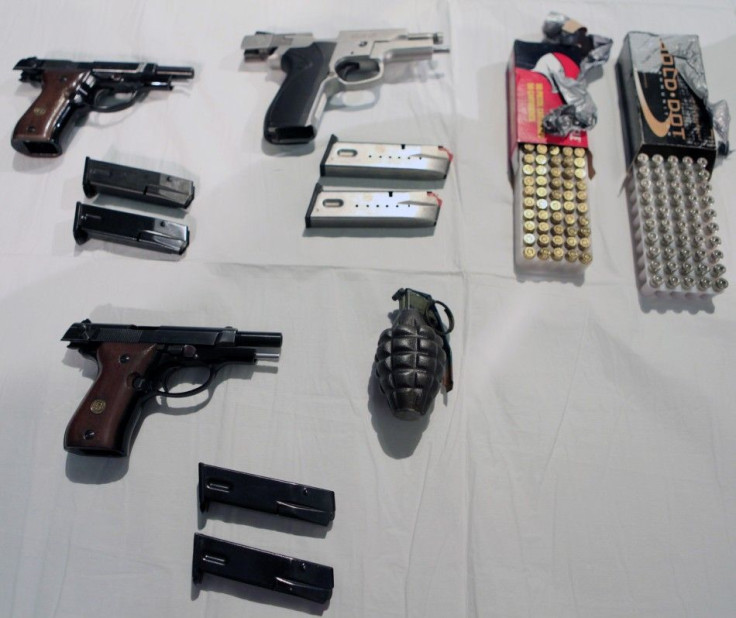Imani Green: British Girl's Tragic Killing Reflects Jamaica’s Relentless Violence

The tragic shooting death of a young British girl on holiday in Jamaica underscores the island nation’s pervasive climate of violence.
Imani Green, an eight-year old from Balham, South London, was killed by gunfire while visiting family in the town of Duncan’s on the northern coast on Friday. Three other people were injured in the shooting that took place in a general store.
British media speculated that she was the accidental victim of a local feud that likely did not involve Imani’s family.
"We heard gunshots. We ran outside and shouted, 'Imani! Imani! Imani! I picked her up off the ground and realized she was still breathing. I flagged down a car and they drove us to hospital. The rest is history," Imani's sister, Jamila Palmer, told the BBC.
Ironically, Imani, who suffered from sickle cell anemia, travelled to Jamaica twice a year in hopes the warmer climate would be beneficial to her health.
"The senseless killing of a young, innocent child must outrage all well-thinking Jamaicans and cause us to join our security forces in an intensified effort to rid our communities of criminals," Peter Bunting, the national security minister, told the Jamaica Gleaner.
Jamaica is one of the most dangerous countries on Earth -- the swaying palms and warm breezes masquerade an extremely violent society beset by gang warfare, poverty, police brutality, political corruption, drug dealing and the proliferation of guns.
Homicides in Jamaica numbered 1,087 in 2012, well below the peak of 1,683 recorded in 2009, but still high by global standards.
According to the U.N., Jamaica had 52.2 murders per 100,000 residents in 2010 (versus a figure of about 4.2 for the United States). On average, someone is murdered on the island once every seven hours.
Britain’s Foreign Office explicitly warns its nationals of "high levels of crime and violence" in Jamaica and recommends that visitors "do not offer resistance in the event of an attempted robbery.”
“The murder of this young child is tragic especially since Jamaica's murder rate for 2011 dropped to a seven-year low and tourism is such a big foreign exchange earner for Jamaica,” Felicia Persaud, CEO of Hard Beat Communications in New York and an expert on Caribbean affairs, commented.
“We know, of course, that we are one of the most violent societies on this planet,” Mark Wignall lamented in a column in the Jamaican Observer.
Part of the problem is the police, who are widely distrusted by the public, even law-abiding members of society.
Mark Shields, a former detective chief superintendent with the London Metropolitan police, who was sent to Jamaica to advise the local police in 2004 once told the Guardian newspaper of Britain about life on the island: "I went to homes where two or three generations were just charred remains in a burnt-out house. I've been to more shootings than you can imagine and more funerals of police officers murdered on duty than I'd ever imagined possible. I remember a police officer's five-year-old daughter taking a bullet in the chest."
"When I first got here, there was a very inward-looking, nepotistic culture," Shields commented on Jamaica's corrupt police service. "They were hated by most of the public in Jamaica, because fatal shootings were running at a ridiculously high rate, corruption was out of control, from top to bottom. Anything from allowing drugs to be brought onto the island and turning a blind eye for a [bribe] to police officers contracted to kill other criminals -- anything you can think of they did."
Bunting believes that Jamaica’s multi-decade history of violence crime has severely hurt the island’s economic development.
“Conservatively, if we had not had the crime rate that we have had over [the] last four decades, we would have three times the size economy we are at now and perhaps as much as 10 times the size economy we are at now. That would put us on par with a first-world country,” he told Jamaicans at a community meeting held at the Jamaican High Commission in London last November.
“Because we have had an above-average violent crime rate for at least four decades ... it has cost us 60 to 90 percent of where we would, otherwise, have been in terms of our GDP and the size of the economy.”
(Jamaica’s GDP in 2011 amounted to some $15-billion -- about the same as Senegal and Democratic Republic of Congo.)
Bunting vowed to dramatically reduce Jamaica’s homicide rate to 12 murders per 100,000 by the year 2016, nearly a 75 percent drop.
“We have to challenge those dysfunctional elements of our culture that have developed over time and have made Jamaica a good place for criminals to do business,” he said.
Persaud concluded that the recent murder of the British girl shows that authorities in the Caribbean island have a lot of work to do.
“[Violence] is something the [Prime Minister] Portia Simpson-Miller government [must address] and has to change,” she said.
© Copyright IBTimes 2024. All rights reserved.





















